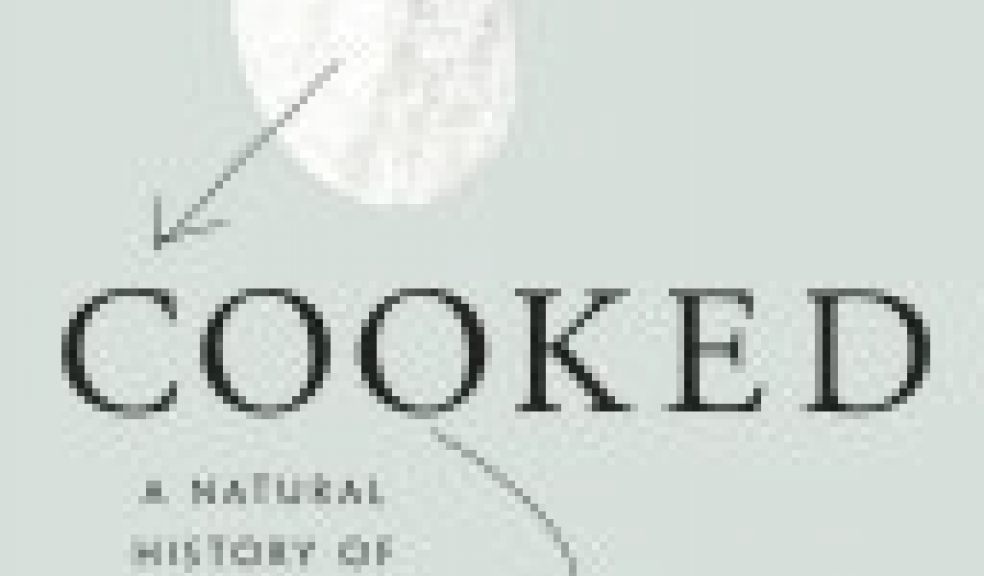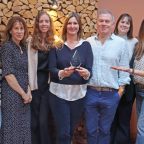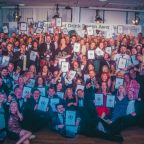
Get into the kitchen - a review of 'Cooked' by Michael Pollan
Michael Pollan is an American food writer best known as a critic of the industrial scale of food production, reflected in his books such as The Omnivores Dilemma, In Defence of Food and Food Rules. His approach can be summed up by his 'rule' - Eat food. Not too much. Mostly plants. This challenge to a seeming over-reliance on nutritionists and others can help us decide what we should eat. He has always advocated individuals and families taking more control over their food. I chatted to him about the book whilst Pollan was over here for its launch.
So this is not a cookery book, it is more a critique of how cookery has developed over recent times and the impact this is having on our health and wellbeing. Pollan raises the cookery paradox; the more TV cookery programmes there are, the less we actually cook ourselves. He says "home cooking has been downgraded and the fetishisation of high end cooking is intimidating people. To cook means you have to cook restaurant-type food and I think that's a mistake."
As a result we hand over responsibility for cooking to food processing companies so we get out of touch with what we eat. His critique of the food industry and of Government policies is devastating - "in America we subsidise the building blocks of junk food and it's no wonder that it is cheaper than healthy food"
Therefore, Pollan suggests, cooking is a political act as it allows us to break free of this dependence on major food companies, supermarkets and large agricultural conglomerates who don't necessarily have our health and enjoyment as their top priorities and who try to convince us that cooking is not a good use of our time.
Cooking for ourselves lets us take back that control over what we eat so that we can better manage our health and enjoyment. He doesn't advocate we cook from scratch every meal, but challenges us to at least (re-) discover these skills.
Using the four elements of fire, water, earth and air, he takes us with him on his journey to explore aspects of cookery. He draws on such diverse disciplines as philosophy, chemistry, religion and anthropology to illuminate the act of cookery.
So, for example, he mentions the 'cookery hypothesis' first put forward by Claude Levi-Strauss. It states that it is cookery that distinguishes us from other animals, as only humans regularly cook their meals. If it is cooking that separates us from other species surely losing that ability and skill means losing something that is part of what it means to be human.
As well as drawing on these other sources Pollan actually gets stuck in to cooking. He works the huge, hot barbecue pits of North Carolina in the section on 'Fire', takes cooking classes from an Iranian chef in the 'Water' section and learns about making artisanal cheeses from a nun. And it is in these sections that Pollan's skill as a storyteller comes through. He draws some great characters, including 'Kosher' Michael Pollan's childhood pet piglet!
He also tackles the role of women in cooking. He shows how cooking was 'relegated' to being a chore and mostly women's work, taking place "within the private space of the household".
He points out how food processing companies have, perhaps cynically, taken advantage of this state of affairs relating: "Back in the 1970s, KFC ran billboards depicting a family-sized bucket of fried chicken under the slogan "Women's Liberation."
So rather than solve the issue of gender roles in the family the big companies took it away saying "we can solve this for you' by providing already processed food.
While encouraging all of us, men, women and children, to get into the kitchen, he suggests that cooking, as well being a political act in reducing our reliance on 'Big Food', can also be an outlet for our inherent creativity. This, perhaps the main theme of the book, shows how cooking allows us to get our hands on real ingredients and transform them into food we can enjoy, using all five senses in ways that our usual daily activities do not. He said "one of the key things about cooking is that it re-connects us to our senses" in a world where for most of our day our senses are underemployed.
In the last chapter on fermentation he hypothesises that the lack of certain bacteria in our lives as a result of not eating so many fermented foods, such as proper pickles, sauerkraut or unpasteurised cheeses, may be responsible for the rise in auto-immune conditions including asthma and allergy. The theory goes that "bacteria essentially 'train' our immune system to create a world (inside us) that is safe for them. If we don't have these (bacteria) our immune system fails to distinguish between friends and foe, and will treat a friend, such as gluten or nut protein, as a foe and overreact."
This is an area of work that Pollan has gone on to develop further since writing this book and I look forward to reading the fruits of his further research on this.
Covering obesity, dieting, the costs of processed food, the many and varied skills of cooking, marketing, the role of cooks over history, agriculture, and microbiology, this is a wonderfully varied, informative and enjoyable read from one of Time Magazine's 100 most influential men in the USA and we can only hope this influence hits home. Most importantly the book gives us some compelling reasons to get back into the kitchen.
Cooked by Michael Pollan is published by Allen Lane, £20




















